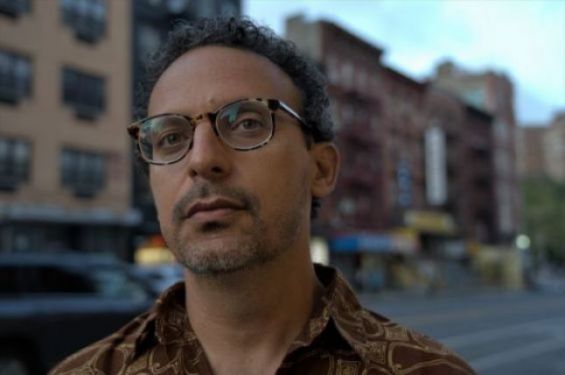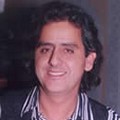Moving to the United States to study at high school was not part of his plan. At the age of fifteen, the Tangier-born university professor Hisham Aidi passed an English exam that landed him a scholarship in New Mexico, where he graduated high school.
A few years later, he packed for Philadelphia (Pennsylvania), where he enrolled in college. «The early 1990s were not easy, no internet, no Moroccan community nearby, no Facebook neither WhatsApp at the time. There was only that monthly call from family in Morocco», he recalled.
Rai and Melhoun music
Hisham Aidi was not able to work outside university at the time. Instead, he worked at the university’s radio station as a music broadcaster. «This was my first job in the music industry, no one had ever heard of Rai music in the United States, so I had to air Chakara and Sami Al Maghribi’s songs, I think that was the first time that Moroccan music made it to an American radio station», he said.

In college, Hisham majored in political theory and economics and focused on Orientalism in Morocco, especially in the city of Tangier and the American Orientalists that lived there, such as Mark Twain and Paul Bowles.
«Part of my graduate research was published a few months ago, in which I relate my conversation with Professor Edward Said about how Orientalist writers - the French, Spanish and Americans - had distorted the image of Tangier in particular and of Morocco in general», Aidi explained.
From Philadelphia, Aidi moved to New York City for his PhD at Columbia University, studying the relationship between governance and economic development.
«My enthusiasm was evident when I came to Columbia University in 1993, I had great professors, such as Marxist thinker Manin Marablo, jazz critic Robin Kelly, Ugandan political theorist Mahmoud Mamdani and thinker Lisa Anderson», Aidi recalled.
«But the ones who struck my mind twenty-five years ago on campus were Edward Said and the great jazz player and musician Randy Weston, who lived in Tangiers in the sixties. He liked Sufism and his house in Brooklyn became my second home where we celebrated Eid together, we sang gnawa, we ate couscous, and met a lot of famous jazz musicians and American politicians».
Iraq war and the United Nations
While working on his PhD, Aidi became a journalist and political analyst covering minority news in New York, while working as a correspondent for a Harvard magazine called Africanana.
 Hisham Aidi with American record producer Quincy Jones. / DR
Hisham Aidi with American record producer Quincy Jones. / DR
He was «based in Harlem, a vibrant neighborhood, where many powerful political movements were held». «I remember writing about Fidel Castro's 2000 visit to Harlem, and then Robert Mugabe's visit, and later, Jerry Rawlings, the former president of Ghana», many African leaders indeed visited mosques and churches in Harlem.
«Let us say that my primary profession was being a researcher in political economy and rights, while my real hobby was writing about music and politics mixed with football», he added.
After completing his PhD in 2002, Aidi started working for the United Nations, writing speeches on developing countries' affairs.
«During the Iraq war in 2003, when the political situation was tense and highly polarized, I wrote a speech for my boss, but it got rejected by political actors in Washington. I remember how the Bush administration prevented the publication of the Human Development Report in the Arab countries, so I left the United Nations to give lectures for a year at the University of Maryland, to have the opportunity to explore the American capital and the large Moroccan and Sudanese community that resides in its suburbs».
Books and awards
And because hard work always pays, Hisham Aidi won many prizes for his works. The first one was a recognition of his scientific contributions in 1997 by the Ford Organization for the oldest research studying the relationship of the Arab political left and the leftwing movements in Latin America.
Aidi had gone to the Egyptian capital Cairo to do this research, and he explained that he «sat with old leftists like Jalal Amin and Gamal Al-Banna». «Unfortunately, I was not able to meet Naguib Mahfouz. But I visited his café many times. From there I went to Mexico and then Brazil to meet the leftists».
This research was published in a book in 2009 under the title «Restructuring the State», and it was a book on the privatization process and labor movements.
He also won the second prize in 2008, for his work on Islam in the American ghetto, specifically the idea of the ability of Islamic institutions to provide stability in poor neighborhoods.
In 2014, he wrote a book on music and American hegemony, in which he discussed how social movements use art as a means of objecting American interference, and was considered the best book in America in 2015 and won the American Book Award for that year.
 Hisham Aidi with randy wiston. / DR
Hisham Aidi with randy wiston. / DR
Aidi also wrote about hip-hop, reviewing how it inspired demonstrators and protesters around the world, and during this year he won the Soros Organization award for his work on the Arab Spring and the Sudanese Revolution and how it shaped immigration in the United States.
Ambassador of Moroccan culture
«The most important of all the prizes is the work we accomplish in Morocco, as I visit the country three to four times a year, I take American professors to complete their research on Morocco, and sometimes I leave New York on a Tuesday to attend the Essaouira music festival and return on a Sunday to my students in Columbia», Aidi said.
«We are currently developing or trying to develop the study of international relations in Morocco, and translating the work of Moroccan youth into English. I personally see a high thirst for knowledge and curiosity whenever I return and sit with Moroccan students», he said.
He added: «I lived and studied in many regions of the world, from Cuba to Senegal to Spain, but I am still a son of Morocco at all times. For twenty years I organized and marketed Moroccan culture in New York, I organized Andalusian nights in museums and universities».
«I am a child of Tangier. I grew up with the songs of Chaqara, the sound of the Spanish radio and football matches on the screens of the old cafes, my family still owns a restaurant in the old city, the Hammadi restaurant named after my grandfather, which was built in early 1951, and it is the oldest restaurant in northern Morocco», said.
Attached to his land of origin, this Moroccan continues to affirm his affection for his land of birth. «I miss Morocco specially during these cold evenings of the American winter. I miss the rhythms of our dialect, the shadows of the medina, the sound of the waves splashing against the coast. I've lived in many cities, but I feel most at home when I am in a cafe in Tangier's medina, on a Sunday night, watching a football match, the smell of mint and verbena in the air, to the left is the sea, and to the right is the Grand mosque where my grandfather prayed. There I feel at peace», he concluded.





 chargement...
chargement...













